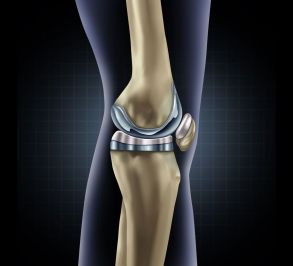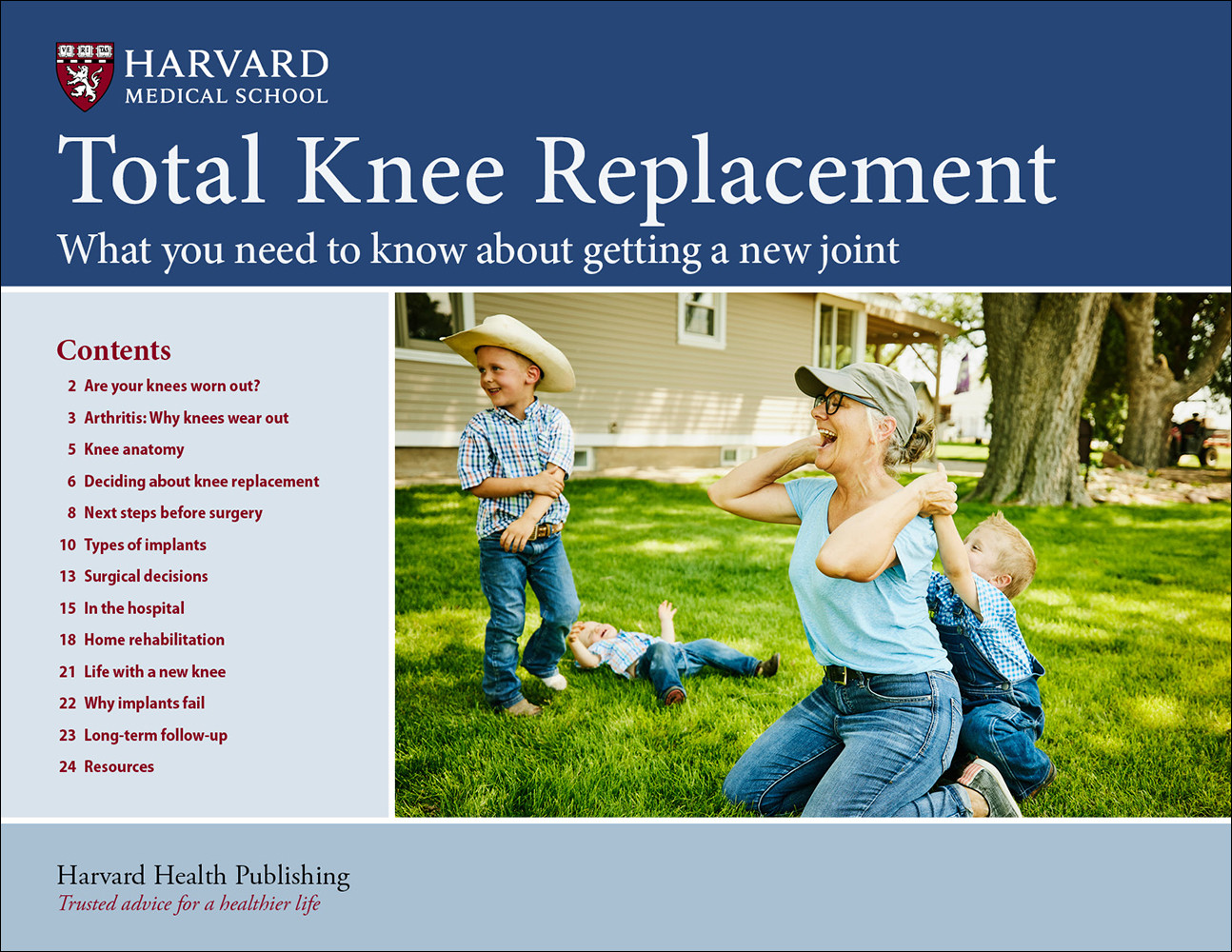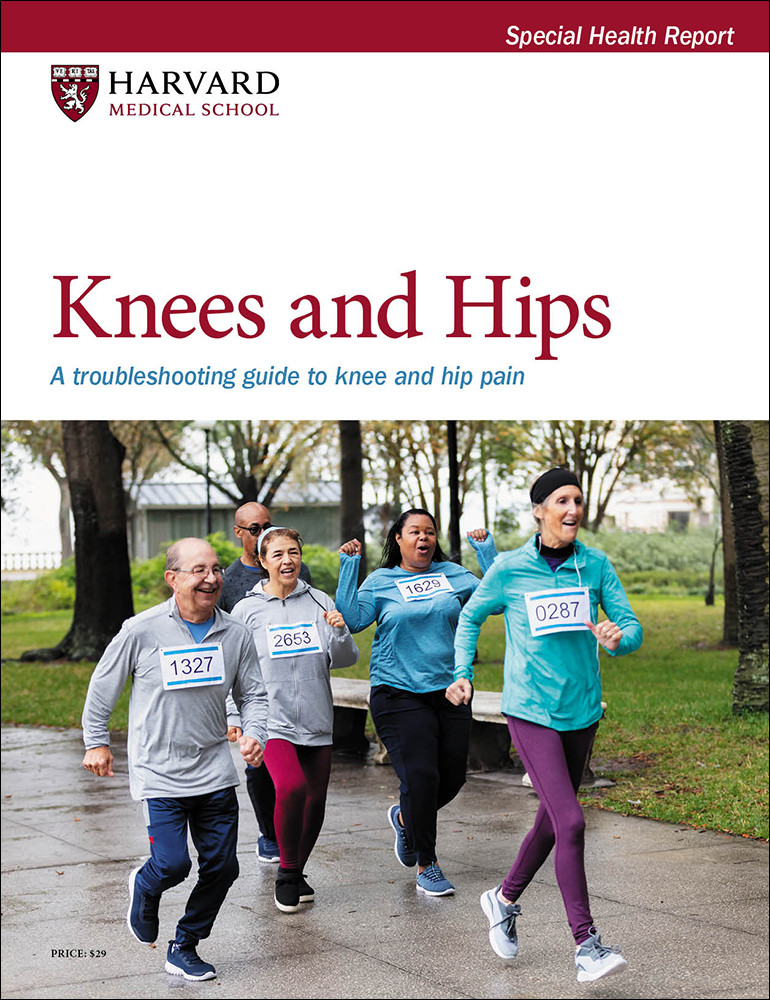Your knees have been bothering you for a while. They’re stiff and achy when you get out of bed… crunch and creak when you go up and down stairs… and painful when you stand up after you’ve been sitting for a while.
If you’re like most people, your doctor may be telling you it’s time to consider surgery to have a total knee replacement. In fact, 730,000 total knee replacements are done each year, making it the most common inpatient surgery in the U.S
Total knee replacement surgery can be life changing. But is it right for you?
It’s a tough decision. On one hand, you’ve got the promise of pain relief and regaining much — or possibly all — of the mobility and independence you want. But you’ve also got questions. What are the risks? What type of knee is best? How do you find the very best surgeon?
That’s why you need Harvard Medical School’s Guide to Total Knee Replacement. This guide brings you everything you need to know about total knee replacement to help you make the best possible decision for your health. For example, you’ll discover...
Why your knees wear out. Few joints in the body do as much every day as the knees. They help you walk, climb, carry heavy objects, and work. In fact, every step you take on level ground puts one to one and a half times your body weight on each knee. Make that two to three times your weight when you go up and down stairs. And if you’re a few pounds heavier than you’d like, your knees are getting hit with an extra four to six pounds of pressure for every extra pound!
Do achy, noisy knees automatically mean they’re “bad enough” for a total replacement? When your knees hurt, it’s tempting to think that having a total knee replacement will restore you to your 20-something active self. Sadly, that’s not the case. In Harvard’s Total Knee Replacement report, you’ll get the facts about knee replacement written in easy-to-understand English. You’ll discover:
- The options you should try before you agree to surgery
- Why you may not want to have your knee replaced if you’re younger than 60
- The procedures that can help you get relief without having a total replacement
- 8 signs it’s time to consider a total knee replacement
- And much more.
If you do need a replacement, or think it’s time to seriously consider it, Harvard’s Total Knee Replacement guide is invaluable. You’ll find a list of critical questions to ask your doctor about his or her credentials and experience (the best doctors welcome these questions) to help ensure you have the best possible surgeon. In addition, you’ll learn the basics of the various types of knee joints available (there are over 150 implant designs) so you can work with your doctor to find the best type for you. You’ll even learn why implants with special features that sound great may actually have a slightly higher risk of complications.
And, since this is often elective surgery, Total Knee Replacement explains the many benefits of prehabilitation. This type of physical therapy may help you have a shorter hospital stay, less post-op pain, and even a faster recovery. You’ll also learn why minimally invasive surgery may sound like the best option, but could make it harder for your doctor to install the implant, common reasons implants fail and how to help avoid these problems, and so much more.
Prepared by the editors of Harvard Health Publishing in consultation with Scott D. Martin, M.D., Associate Professor of Orthopedics, Harvard Medical School, Sports Medicine Fellowship Director and Joint Preservation Center Director, Massachusetts General Hospital. 24 Pages. (2025)
About Harvard Medical School Guides
Harvard Medical School Guides delivers compact, practical information on important health concerns. These publications are smaller in scope than our Special Health Reports, but they are written in the same clear, easy-to-understand language, and they provide the authoritative health advice you expect from Harvard Health Publishing.













